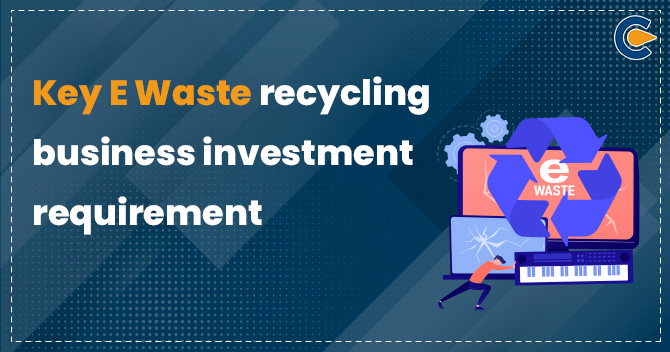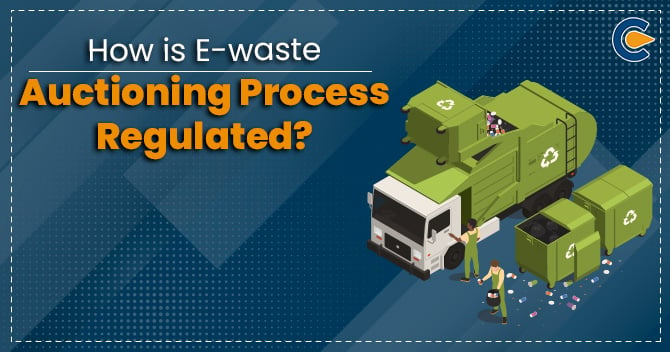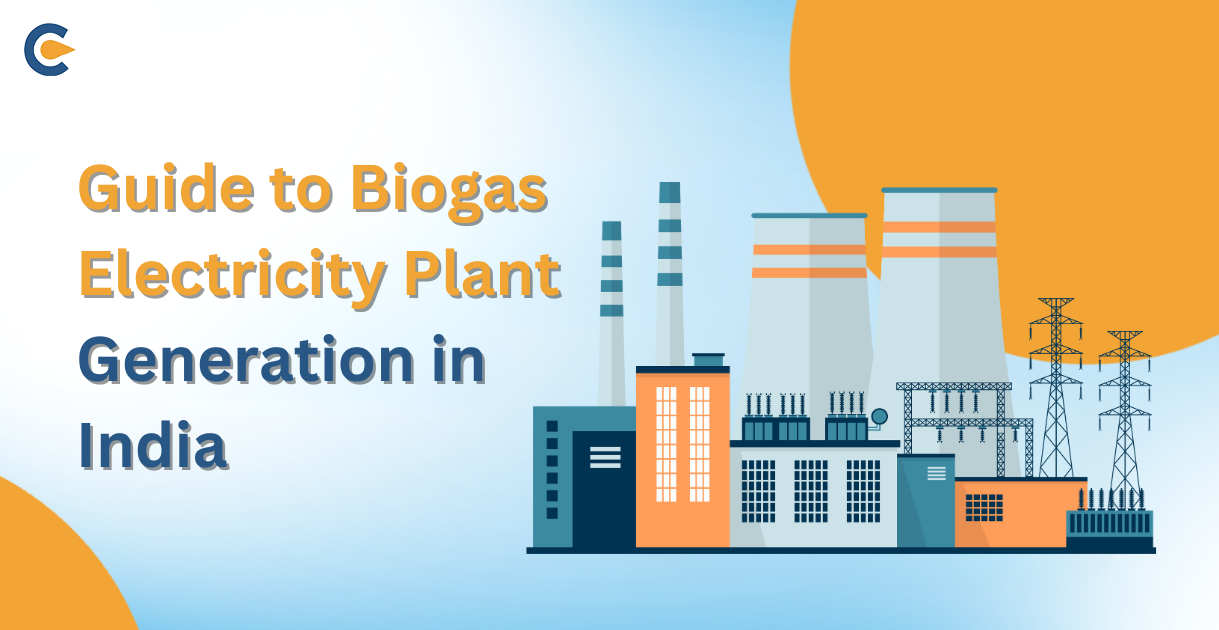In the last decade, new technological innovations and the use of electronic devices have seen exponential growth, with them now dominating the market. But, with this influx of new devices, the world has also seen a growth in the amount of the E-waste, which as if now is one of the fastest-growing Waste, ultimately opening the market for new innovative businesses involving recycling and proper management of E-Waste.
These businesses have served a very important purpose of not only increasing the overall development of the economy of the company but also reducing the environmental damage that E-Waste has caused in its wake. Therefore, it is very important for authorities to encourage E-Waste recycling Business investment in the country.
E-Waste regulation in India
European Union determined E-Waste as electrical or electronic equipment that is Waste, including all components, subassemblies and consumables that are part of the product at the time of discarding. But if we understand E-Waste in simple terms, it is the Waste acquired through old and end-of-life electronic products, which can range from a small earphones to large refrigerators.
In India, our legislation defines E-Waste under E-Waste (Management) Rules, 2016 as Waste which is electrical and electronic equipment (EEE), whole or in part, discarded as Waste by consumers (individual or bulk) as well as rejects from manufacturing, refurbishment and repair processes. With India being a developing economy with having large population India is considered as one of the significant contributors to the E-Waste. As per the latest reports by Central Pollution Control Board, India have produced around 7.71 lakh tonnes in 2018-19, which increased from 2019-20 to 10.14 lakh. Which is at least an increase of about 31%. These Waste generated are accumulated from a variety of resources, including but not limited to household, consumers, and bulk consumers, which include governmental offices, Commercial establishments, manufacturers and retailers.
Under E-Waste (Management) Rules, 2016, E-Waste is categorised into two broad segregation: IT and Telecommunications equipment, including Cell Phones, GPS (Global Positioning System), Printers, Personal Computers, Telephones and pocket calculators. And second is Consumer Electricals and Electrical Devices, including Television, Refrigerators, etc.
E-Waste recycling business Investment
E-Waste recycling business Investment perfectly portrays the recent changes in the Market from a linear economy to a circular one which is by intention designed to be restorative and regenerative. The business not only creates new products but also recycles the products in order to generate more capital. E-waste is considered as the gold mine of the economy where the metals that are extracted can be used in many forms and ways. This extraction of metals and recycling of E-Waste require a proper management system and regulations along with proper infrastructure and transportation design to make it a lucrative business model.
E-Waste management rules dictate the Collection of 30 per cent out of 70 per cent of Waste produced by them over seven years. These figures make it difficult for producers to fulfil their EPR responsibility on the one hand and manage their production process on the other, leaving them no choice but to hire or delegate this responsibility to the E-Waste recycling Business. As of now, in March 2021, India has registered 400 E-Waste recyclers with an annual capacity of recycling 1.07 million tons per annum. The largest e-waste recycling facility in India has a capacity to handle around 96,000 E-Waste per annum, holding five ISO certificates for recycling.
As per the International Finance Corporation (IFC[1]), the electronic waste sector is going to create 4.5 lakh direct jobs by 2025 and another 1.8 lakh jobs in the allied sectors of the transportation and manufacturing industry in India. Further, if we take the example of the USA, the US’s recycling activities provided 757,000 jobs, $6.7 billion in tax revenues, and $36.6 billion in wages. By implication, for every thousand tons you recycle, there are 1.57 jobs created, $ 76,000 in wages paid, and $ 14,101 in tax revenues.
The recycling process includes Collection and transportation, shredding and segregation, Dust Extraction, Magnetic separation, Waste separation, Purification of Waste stream and, at last, preparing material recycled for sale.
Although the E-Waste recycling industry is a very lucrative business, it does need significant financial aid, starting from acquiring the license to land and setting up operations. Based on this financial air, there are two types of E-Waste business models:-
Self-Owned Operation
In this business plan, the recycler is the primary investor who has to endure the total cost by himself in case the operation comes across any loss.
Franchised-Based Operation
In this business model, the Waste is overlooked by the enterprise, which is the franchise of the company which is already established in Electronic Waste management Company.
Some of the big Companies working as E-Waste Recycling Business Investment are Deshwal Waste Management, Deluxe Recycling, Packman etc.
Regulation for set up of E-Waste Recycling Business Investment
For setting up E-Waste Recycling Business Investment, it is very important that the owner acquire different types of licenses from the concerned Government authority, which may be different for different states.
But the essential requirement involves:-
- The first step for recyclers is to apply for Udyog Aadhaar MSME Registration which is also available online.
- After registering, the producers need to apply for a “Consent to establish” Certificate from the concerned State Pollution Control Board. The procedure to which involve registering through the online consent management and monitoring system, followed by filing an application with all the relevant information and mandatory inspection.
- And in case of import of the E-Waste, the recycler will require permission from the Ministry of Environment, Forest and Climate change and Central Board of Excise and Customs.
Documents required for “Consent to establish”
1. Site plan with photos depicting the distance between the proposed site and the nearest residential area and water body (applicable for Orange and Red categories).
2. SSI Certificate of Partners/Directors, Industry Department Certificate
3. Vents/ Stacks/ Chimney and emission sites with Nos. The layout plan shows the drainage/pipeline and final disposal point for liquid effluent.
4. Collection, storage, and disposal of solid Waste
5. Total available open land in the industrial complex for Green Belt Development, landscaping, and other purposes.
6. A qualified person drew building blueprints with machinery details.
7. Total constructed area
8. The project report includes production process information, process flow diagram, chemical formulas, and emission, effluent, and hazards/solid waste sources.
9. Water usage breakdown and water balance
10. Effluent / Sewage Treatment Plant Specifications and Flow Diagram
11. Boiler type, fuel used, and quantity
12. Specifics on air pollution controls
13. DG Specifications
14. Raw material list with daily MTD/monthly quantity
15. Product/by-product list with daily MTD/monthly quantity
16. In the case of chemical industries, a Material Safety Data Sheet is required.
17. Permission from the state’s groundwater authority.
18. Common Biomedical Waste Treatment Facility Membership Letter (for healthcare facilities, Pharmaceutical units).
Limitation while establishing E-Waste recycling Business investment.
Although the rules related to E-Waste are repeatedly going through multiple amendments to meet the changing demand of the Market and producers, there is still the requirement of sufficient regulatory capacity at the individual state and central level in matters of labour requirements, financial assistance or any other kinds of assistance that the business owners require. There is a general lack of awareness as well among the consumers even regarding the presence of these formal recycling units and the negative impact of E-Waste on the environment, which leads to slow business for many recycling units. Apart from this, lack of proper infrastructure and cost-effective technology is also among the primary reason why it becomes to establish E-Waste recycling business investment.
Conclusion
The Global E-waste Monitor 2017 shows that e-waste has grown to 44.7 million metric tons annually as compared to which only 20% of which is documented to be collected and recycled. The fate of 76% (34.1 million metric tonnes) is unknown but likely dumped, traded or recycled under inferior conditions. Much e-waste also remains in the sheds, attics and storage rooms of its owners or gets disposed of with the average household bin. This leads to lasting damage to the environment and economy, creating the need for more E-Waste recycling Business Investments.











